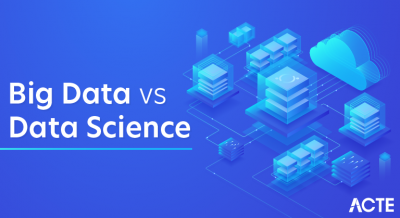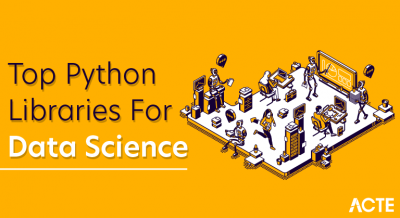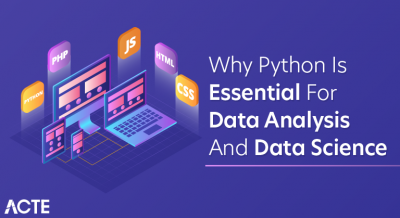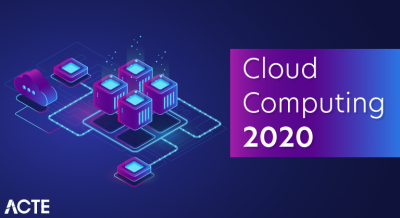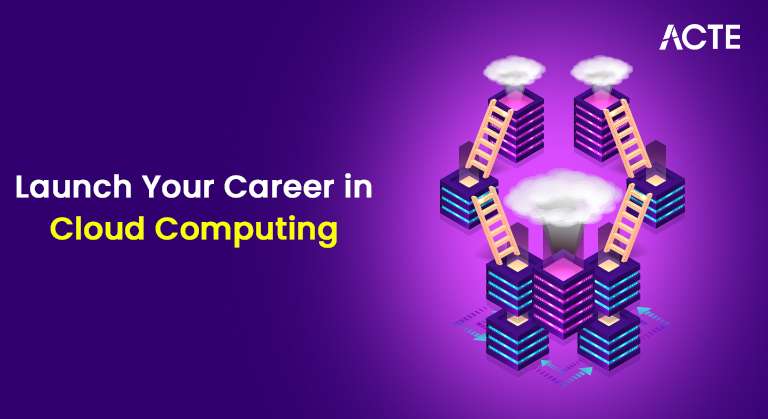
- Introduction to Cloud Computing Careers
- Why Cloud Computing Skills Are in Demand
- Key Cloud Computing Certifications
- Learning Cloud Computing Basics
- Hands-On Projects to Build Cloud Skills
- Cloud Computing Job Roles and Salaries
- Cloud Security Skills for Career Growth
- Transitioning from IT to Cloud Computing
- Networking and Building a Personal Cloud Brand
- Future Career Opportunities in Cloud
Introduction to Cloud Computing Careers
Cloud computing has revolutionized the IT industry, providing businesses with on-demand access to computing resources like storage, processing power, and software. As more organizations move to the cloud, the demand for professionals skilled in cloud computing is growing rapidly. Careers in cloud computing are not just limited to technical roles but also span across various disciplines, including security, architecture, operations, and management, all of which are covered in detail in a Cloud Computing Course. With companies of all sizes adopting cloud technologies, professionals with cloud skills are in high demand, and the potential for career growth is substantial. This article explores why cloud computing skills are in demand, the certifications that can advance your career, the differences between major cloud providers like AWS, Azure, and Google Cloud, and how to navigate a successful career path in cloud computing.
Are You Interested in Learning More About Cloud Computing? Sign Up For Our Cloud Computing Online Course Today!
Why Cloud Computing Skills Are in Demand
The rise of cloud computing has transformed the way businesses operate, allowing them to scale resources efficiently, reduce costs, and increase collaboration. The growth of public cloud services such as Amazon Web Services (AWS), Microsoft Azure, and Google Cloud has fueled the need for professionals who can help organizations leverage these platforms. Key factors driving the demand for cloud computing skills include:
- Digital Transformation: As companies shift their operations to the cloud, they require professionals to manage, maintain, and optimize their cloud infrastructure.
- Cost Optimization: Cloud computing offers businesses flexible pricing models and the ability to pay only for what they use. Professionals are needed to help organizations optimize cloud costs, especially when working with Data Streams in Amazon Kinesis to manage and process real-time data efficiently.
- Scalability and Flexibility: Cloud computing offers the ability to scale IT resources quickly. As companies expand, they need professionals who can ensure the efficient and secure operation of cloud systems.
- CloudSecurity: With the increased use of the cloud, security has become a top priority for organizations. Cloud security professionals are essential to protecting sensitive data and ensuring compliance with regulations.
- Emerging Technologies: Cloud computing is at the heart of emerging technologies like AI, machine learning, and big data, requiring professionals who can integrate these technologies into cloud solutions.
- AWS Certified Solutions Architect – Associate: AWS is the leading cloud provider, and this certification focuses on designing distributed systems and applications using AWS services.
- Microsoft Certified: Azure Fundamentals: For those starting their career with Microsoft Azure, this entry-level certification covers core cloud concepts, Azure services, and basic security and compliance.
- Google Cloud Professional Cloud Architect: This certification focuses on the design, development, and management of Google Cloud solutions and services, including infrastructure, networking, and security, while also covering tools like What is AWS Elasticsearch for search and analytics in cloud environments.
- CompTIA Cloud+: This vendor-neutral certification provides foundational knowledge of cloud computing, focusing on cloud deployment, management, and security.
- Certified Kubernetes Administrator (CKA): Kubernetes is a key container orchestration platform widely used in cloud-native applications. This certification demonstrates your ability to deploy and manage Kubernetes clusters in the cloud.
- Certified Cloud Security Professional (CCSP): This certification is ideal for individuals looking to specialize in cloud security and covers topics such as governance, risk management, and compliance in cloud environments.
- Deploy a Website: Set up a static website on AWS S3, Google Cloud Storage, or Azure Blob Storage.
- Create a Virtual Machine: Use EC2 (AWS), Virtual Machines (Azure), or Google Compute Engine to launch a virtual machine and configure a basic web server.
- Set Up a Database: Deploy a database instance using Amazon RDS, Azure SQL Database, or Google Cloud SQL within a secure and isolated network environment like Amazon Virtual Private Cloud.
- Automate Deployment with CI/CD: Implement a CI/CD pipeline using Jenkins, GitLab, or AWS CodePipeline to automate application deployment to the cloud.
- Set Up Cloud Security: Practice setting up IAM (Identity and Access Management) roles and policies to secure cloud resources.
- Implement Monitoring and Logging: Use cloud-native monitoring tools like AWS CloudWatch, Azure Monitor, or Google Cloud Operations to track system performance, detect issues, and gather logs for debugging.
- Configure Cloud Storage for Backup and Recovery: Set up automated backup and disaster recovery solutions using cloud storage services like AWS S3, Azure Blob Storage, or Google Cloud Storage to ensure data protection and business continuity.
- Cloud Architect: Designs cloud-based solutions and architectures for enterprises. Average salary: $125,000 – $150,000/year.
- Cloud Engineer: Implements and manages cloud services and infrastructure. Average salary: $95,000 – $120,000/year.
- Cloud Security Engineer: Ensures the security of cloud infrastructure and applications. Average salary: $105,000 – $130,000/year.
- Cloud DevOps Engineer: Automates the deployment and management of cloud applications and services. Average salary: $110,000 – $140,000/year.
- Cloud Consultant: Provides expert guidance to businesses looking to migrate to or optimize their cloud infrastructure. Average salary: $100,000 – $130,000/year.
- Identity and Access Management (IAM): Managing who has access to cloud resources and how that access is granted.
- Encryption: Ensuring data is encrypted both in transit and at rest to protect it from unauthorized access.
- Compliance and Regulatory Knowledge: Understanding laws and regulations governing cloud data, such as GDPR or HIPAA.
- Security Automation: Implementing automated security checks and incident response protocols to reduce vulnerabilities.
- LinkedIn: Connect with cloud professionals, join relevant groups, and share your projects and certifications.
- Meetups and Conferences: Attend cloud-related meetups and industry conferences to meet like-minded professionals and learn about new trends.
- Personal Blog or YouTube Channel: Share your learning experiences and projects to showcase your skills and build your online presence, especially those that demonstrate how to Boost AWS Storage Speed with High IOPS Solutions.
- Cloud Communities and Forums: Participate in online communities such as Stack Overflow, Reddit, and cloud-specific forums to ask questions, share insights, and learn from others in the field.
- Online Courses and Certifications: Enroll in cloud computing courses on platforms like Coursera, Udemy, or AWS Training to deepen your knowledge, and earn certifications to validate your skills.
- Networking with Mentors: Seek out mentors in the cloud space who can provide guidance, industry insights, and feedback on your progress, helping you grow your career more effectively.
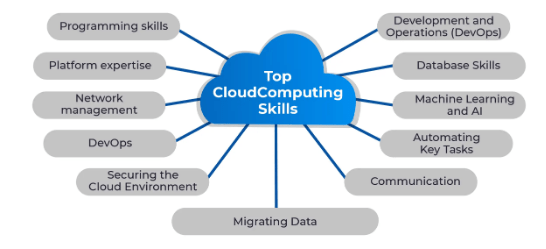
Key Cloud Computing Certifications
Certifications are a great way to demonstrate your expertise in cloud computing and stand out in the job market. Here are some of the most recognized cloud certifications:
Want to Obtaining Your Cloud Computing Certificate? View The Cloud Computing Online Course Offered By ACTE Right Now!
Learning Cloud Computing Basics
Before diving into certifications or more advanced cloud topics, it’s crucial to grasp the foundational concepts of cloud computing. Start with understanding cloud deployment models, which define the environment in which cloud resources are deployed. These include public, where services are provided over the internet; private, dedicated to a single organization; hybrid, which combines both public and private clouds; and multi-cloud, where services span multiple cloud providers, with strategies to Optimize IT with Azure Migration Tools ensuring smooth transitions across environments. Next, familiarize yourself with the main cloud service models: IaaS (Infrastructure as a Service), which offers virtualized computing resources like AWS EC2 and Azure Virtual Machines; PaaS (Platform as a Service), providing a platform to build and deploy applications, such as Google App Engine and Azure App Service; and SaaS (Software as a Service), which delivers software applications via the internet, like Gmail or Microsoft Office 365.
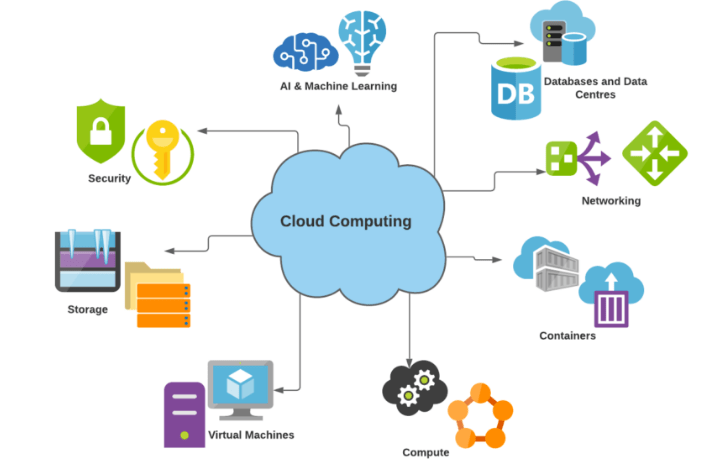
Understanding virtualization also helps you grasp how cloud providers efficiently allocate and manage resources across vast data centers. It forms the foundation for technologies like containers and orchestration tools such as Kubernetes. Mastering this concept is essential for troubleshooting, optimizing performance, and designing scalable cloud architectures.
Hands-On Projects to Build Cloud Skills
To gain practical experience, hands-on projects are essential. Here are some ideas for building your cloud skills:
Cloud Computing Job Roles and Salaries
There are several career paths in cloud computing, each with its own skill set and responsibilities, which can be explored further through a Cloud Computing Course. Some of the most common roles include:
Are You Considering Pursuing a Master’s Degree in Cloud Computing? Enroll in the Cloud Computing Masters Course Today!
Cloud Security Skills for Career Growth
As cloud adoption grows, cloud security becomes more important. Cloud security professionals are responsible for protecting sensitive data, ensuring compliance, and securing cloud-based applications and services. Key skills for cloud security include:
Transitioning from IT to Cloud Computing
For professionals with a background in traditional IT roles like networking, system administration, or software development, transitioning to cloud computing can be a relatively smooth and logical progression. Begin by gaining a solid understanding of basic cloud concepts, including cloud deployment models (public, private, hybrid) and cloud service models (IaaS, PaaS, SaaS). Familiarize yourself with the major cloud providers such as AWS, Azure, and Google Cloud, and explore the services they offer using various Cloud Computing Tools. Leverage your existing skills to specialize in areas that are in high demand in cloud computing. For example, if you have a networking background, focus on cloud networking and learn about cloud-specific networking concepts like VPCs (Virtual Private Clouds), load balancing, and VPNs. Those with experience in security can transition to cloud security, learning how to implement IAM, manage data protection, and configure firewalls in the cloud. If you come from a software development background, you can explore cloud application development, learning how to build, deploy, and scale applications using cloud platforms. Building hands-on experience through certifications, personal projects, and real-world scenarios will accelerate your transition into the cloud computing field.
Networking and Building a Personal Cloud Brand
To advance your career in cloud computing, it’s important to build a strong professional network and personal brand:
Want to Learn About Cloud Computing? Explore Our Cloud Computing Interview Questions & Answer Featuring the Most Frequently Asked Questions in Job Interviews.
Future Career Opportunities in Cloud
The future of cloud computing looks bright as businesses increasingly adopt cloud technologies. This shift is driving a growing demand for skilled cloud professionals across various sectors. Emerging technologies like AI, machine learning, and edge computing are being integrated into cloud platforms, opening up exciting opportunities in fields such as data science, cloud security, and AI cloud engineering. Cloud professionals who stay updated with the latest tools, trends, and best practices will be well-positioned to take advantage of these developments, especially those covered in a comprehensive Cloud Computing Course. Earning relevant certifications, gaining hands-on experience, and continuously improving technical skills will be essential for success in this rapidly evolving field. As cloud platforms expand and new innovations emerge, the cloud computing industry will offer lucrative career opportunities for those with the right expertise. Professionals who embrace these changes and adapt to new technologies will be at the forefront of the cloud revolution, contributing to the transformation of businesses worldwide.

